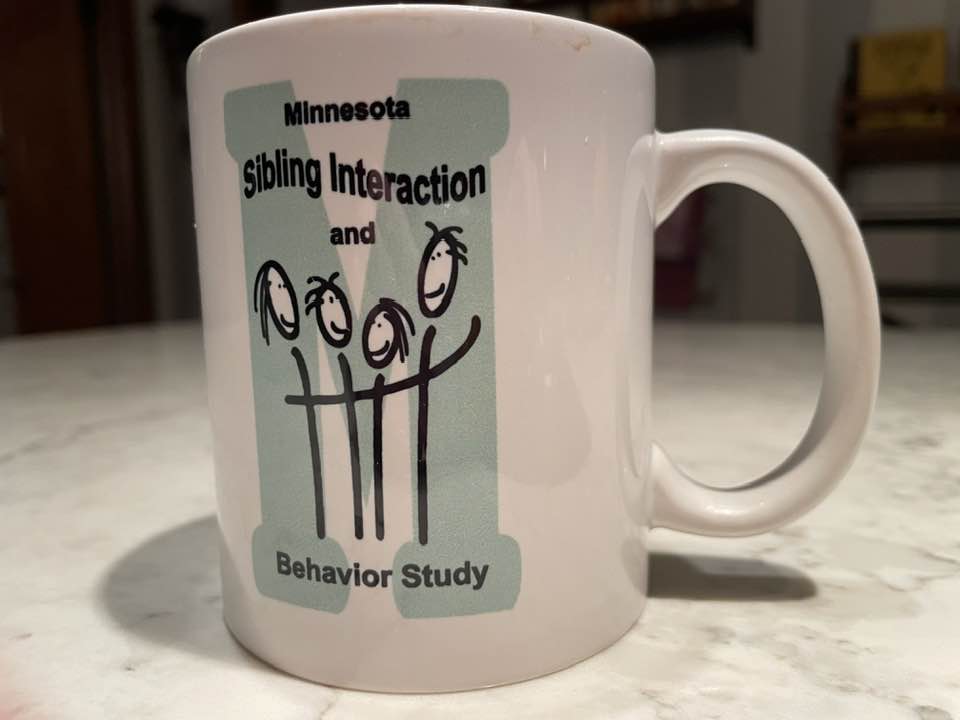OCTOBER 31, 2024 – Last Tuesday I completed the third and final phase of SIBS at the University of Minnesota (see 10/16/24 post). It was an in-person session consisting of an interview and compilation of IQ tests portrayed euphemistically as “brain teasers.” The tests or “teasers” were administered in a quiet and spacious room at the Minnesota Center for Twin and Family Research housed in Campbell Hall on the main campus (East Bank) high above the Mississippi River.
No reason existed for sweaty palms or brow, especially in the case of a 70-year-old white guy long liberated from the need to appear smarter than he is. More critically, the amount of the stipend was fixed, irrespective of score. I was determined to have fun.
The first few questions, however, stirred me to pretend I was an actor playing the role of a nursing home resident in a film about aging.
“What is today’s date?” and “What day of the week is it?” and “What city are you in right now?”
Cast as one of the sharper residents in the “near-memory” unit of the facility, I imagined, I aced the opening round.
The next several tests were on paper and featured visual patterns. These seemed to be my forte. I’d zipped through them in my remote session on the 16th and the versions now on the table prompted recollections of when I was a kid playing catch with my dad between the time he arrived home from work and when my mother would call us in for supper.
Another test required the match-up between a given sequence of four lowercase letters and a series of six sets of the same four letters but in different orders (including the matching one). The basic function was easy-peasy; the challenge was speed—how many match-ups could be completed in two minutes?
Then came a more demanding exercise: listening to two stories, then retelling each in as much detail and accuracy as possible. I thought I’d done a half decent job on these, but I told the test administrator that if he were a client who’d walked into my office and told me either story, I would’ve said, “Okay, good. Now tell me your story again, but this time I want to take notes.” (An hour later I was asked trick questions about each of the two stories.)
My favorite part of the session was a trivia test. In the off chance that someone scheduled to take the same tests might be reading this post (you know who you are), I can’t reveal the specific questions, but they seemed to have been scripted precisely for me. All 10 of the somewhat obscure history/geography/science questions were right up my alley, but eight of them came straight from sources I’d touched, heard, opened, seen in the past week alone! I couldn’t believe the coincidence. I was sure that my performance on this test would compensate for my disappointing stumbles on two of the tests I’d taken on the 16th.
But what does it matter? At an earlier, snappier stage of life, I would’ve been gripping the wheel and pressing pedal to metal to stay in the fast lane. Now that I’m in the deceleration lane, the main object is simply to keep all four wheels on the pavement as long as possible.
Today, coincidentally, The New York Times included an article about the connection between doing puzzles and deferring dementia. If you think there’s an established direct relationship between “teasing the brain” and keeping it . . . well, save your money. Most of the jury is still in deliberations, but cognitively stimulating activities—including “brain teasers” of the sort I experienced as part of SIBS—definitely can’t hurt . . . unless you grade yourself and let poor results affect your morale. But given the size of the self-help market, I’m sure you can find plenty of morale boosting activities, especially if you’re willing to pay enough.
Subscribe to this blog and receive notifications of new posts by email.
© 2024 by Eric Nilsson
